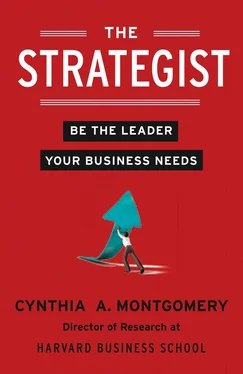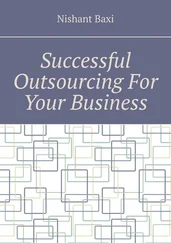What becomes clear is that their arguments are propelled by an enthusiasm for the company itself, for what it’s achieved in the past, and for the storehouse of capabilities it could bring to a new venture. What is missing is a specific plan that shows why all of that will matter in this industry, and how it will neutralize the long-lived forces that have broken so many other firms.
These discussions always remind me of how French generals after World War I responded to the fact that, in the previous half century, Germany had twice defeated French armies. The generals took a number of steps, including construction of the now-infamous Maginot Line, but a key reason, they said, that France would not be defeated again was the élan vital of the French soldier. Élan vital means “vital spirit” and the gist of French thinking was that the superior determination or attitude of the French army would defeat whatever the Germans threw at it. Of course, we know how well that worked. It was the military equivalent of the myth of the super-manager.
Masco’s vital spirit wasn’t enough, either. Its leaders hoped its superior management and manufacturing skills would lead it to victory on a new front, and that the same strategy that had brought it great success in faucets would do the same in furniture. But, while similar in some ways, the two industries were different in other ways that Masco either failed to notice or appreciate.
Masco’s purchases of furniture companies at three price points—low, middle, and high—reflected its belief that significant scope economies, or savings that come from producing a wide range of products, were possible in furniture. That approach had worked in faucets, where a range of products could be made in the same factory, sold through the same channels, installed by the same plumber, and often bought by the same customer for use in different locations in a house. In furniture, however, manufacturing, distribution, retailing, and customers differ dramatically from the top end of the market to the bottom, making scope economies much more difficult to achieve. Discount furniture is mass-produced and mass-marketed, while expensive furniture is largely handmade and distributed through specialty retail shops. Few customers buy furniture at both ends of the price and quality spectrum, and the products are almost never found at the same retailer.
Similarly, scale economies were difficult to come by in furniture. Even after it purchased its way to market leadership, Masco held only a paltry 7 percent of the market, compared with its 30 percent in faucets. Seven percent was unlikely to confer much, if any, economic advantage, particularly when spread across so many styles, so many manufacturing plants, so many channels, and so many price points.
Like other furniture manufacturers, Masco’s fortunes were hindered by the industry’s extreme product variety, high shipping costs, and cyclicality, which in combination make it extraordinarily difficult to manage a supply chain efficiently, or profitably substitute capital equipment for labor. Without a compelling way to address these issues, a manufacturer will always be at their mercy.
Above all, Masco failed to learn the biggest lesson of its success in faucets. Its one-handle and washerless products gave it unique advantages that addressed important customer needs. Everything else it did in that industry flowed from those key differences. In a market where functionality was crucial, Masco had a demonstrable product edge. In furniture, an industry ruled more by fashion than function, Masco had no such core advantage, nothing that was strong enough to counter the gravitational pull of the industry’s unattractive competitive forces.
Like those French generals, Masco failed to access its own battle readiness. It placed unwarranted faith in its superior management élan vital and underestimated the forces it was up against. One executive used a different but similar metaphor to describe what the company did: “Masco walked into a lion’s den and was unprepared to meet a lion.”
THE STRATEGIST IN REMORSE
Richard Manoogian, CEO-strategist and son of the company’s founder, took the outcome hard. At stake wasn’t merely a company he ran but the legacy his father had created and passed on to him. Father and son had strung together thirty-one years of consistently superior performance and created a superb reputation on Wall Street. All of that went up in smoke. In a story titled, “The Masco Fiasco,” Financial World observed: “The Masco Corp. was once one of America’s most admired companies; not anymore.” Though Manoogian promised to return the company to “its past glory,” he would have to regain the trust of his shareholders, many of whom felt “stuck in a nine-year nightmare of broken promises.” 11
It was a case of the overconfident strategist. Along with many other companies that tried to crack the furniture industry, Masco believed a disorganized, competitive, low-profit business offered easy prospects for a disciplined, well-managed company. By some process of optimistic thinking, superficial analysis, and misplaced analogy, serious industry problems began to look like golden opportunities.
The same hopeful thinking reappears every time I teach the Masco case. In their initial analysis of the furniture business, my students—all seasoned executives—duly note how unattractive it is. Yet when the time comes to decide what Masco should do, they prefer to interpret every problem as an opportunity (an “insurmountable opportunity,” as some wag once said). Chaos, cyclicality, fragmentation? Great! No dominant player and low brand recognition? Wonderful! A difficult-to-manage supply chain with large, expensive items, and huge variety? Terrific! Seemingly, there was nothing Masco’s resources and prowess could not overcome or turn to their advantage. It is the myth of the super-manager in full force.
I suspect Masco fell into the same trap. In the face of deeply ingrained, long-lived industry problems, its leaders succumbed to a costly bout of irrational faith in the power of superior management.
THE POWER OF REALISM
Do the lessons of Masco resonate with you?
More than twenty years after the Masco fiasco, my students repeatedly approach me to say, “My industry is just like the furniture business! I’m working really hard and getting nowhere.” For them it’s a eureka moment. The issues they’ve been battling suddenly come into focus, and they understand the larger reasons for their struggles.
They, like Welch, Buffett, and other astute business leaders, grasp the lesson of the industry effect and its profound implications for firm performance. They recognize that, as in the famous serenity prayer, you must accept the things you cannot change, have the courage to change the things you can, and the wisdom to know the difference. It’s a lesson great strategists understand well, but it’s not an easy lesson to accept and master. The myth of the super-manager is hard to let go.
The fundamental lessons here are simple but of paramount importance for the strategist.
First, you must understand the competitive forces in your industry. How you respond to them is your strategy. That means if you don’t understand them, your strategy is based on luck and hope.
Second, even if you understand your industry’s competitive forces, you must find a way to deal with them that is up to the challenge. That may mean skillful positioning, deliberate efforts to counter negative forces or exploit favorable ones, or even a timely exit. But don’t be trapped by the myth into believing that your superior management skills will carry you to success.
Third, whatever you do, don’t underestimate the power of these forces. Their impact on the destiny of your business may well be as great as your own.
Читать дальше








![Theresa Cheung - The Dream Dictionary from A to Z [Revised edition] - The Ultimate A–Z to Interpret the Secrets of Your Dreams](/books/692092/theresa-cheung-the-dream-dictionary-from-a-to-z-r-thumb.webp)



